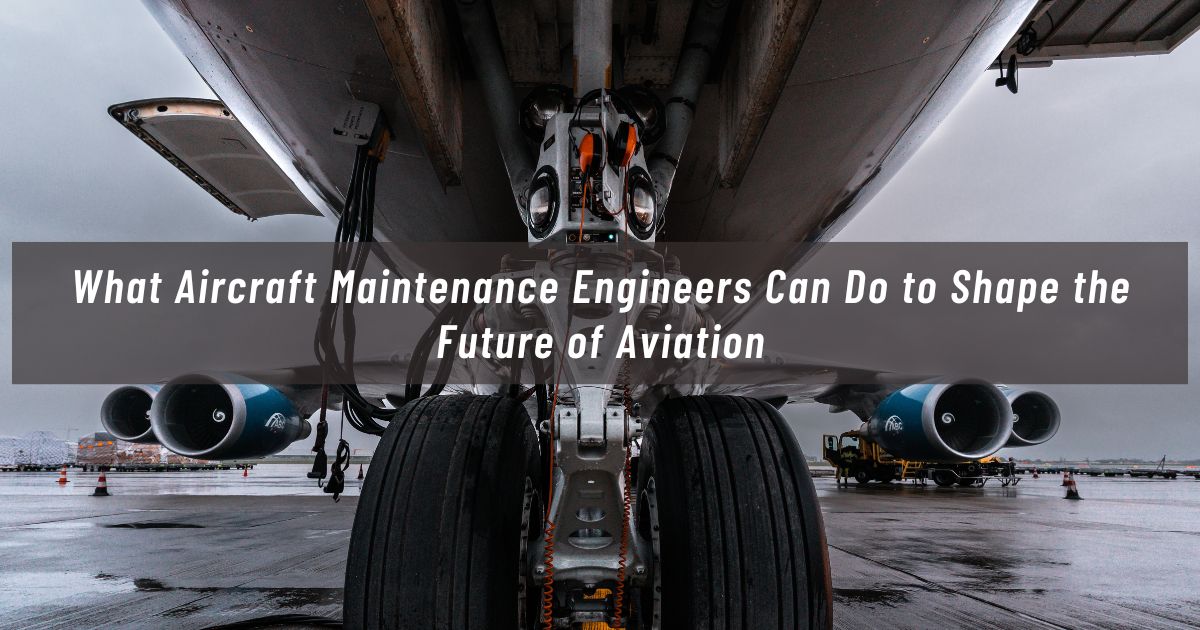What Aircraft Maintenance Engineers Can Do to Shape the Future of Aviation

Aircraft maintenance engineers play a pivotal role in ensuring the safety, reliability, and efficiency of aircraft operations. As technology continues to advance at a rapid pace, these skilled professionals find themselves at the forefront of shaping the future of aviation. In this article, we will explore the key contributions aircraft maintenance engineers make and delve into the innovative ways they can drive the industry forward. From embracing emerging technologies to fostering sustainable practices, the possibilities are endless for these dedicated individuals in shaping a brighter future for aviation.
- Embracing Cutting-Edge Technologies : In order to shape the future of aviation, aircraft maintenance engineers must adapt to and embrace cutting-edge technologies. One such technology is predictive maintenance, which utilizes data analytics and artificial intelligence to forecast equipment failures before they occur. By implementing predictive maintenance practices, engineers can reduce downtime, optimize maintenance schedules, and ultimately enhance aircraft reliability.
Additionally, advancements in robotics and automation are revolutionizing aircraft inspections and maintenance procedures. Engineers can leverage drones and robots equipped with sensors and cameras to conduct detailed inspections, saving time and improving accuracy. By staying at the forefront of technological advancements, aircraft maintenance engineers can enhance safety, increase efficiency, and reduce costs for the aviation industry.
- Enhancing Sustainability: As environmental concerns continue to grow, aircraft maintenance engineers have an opportunity to shape the future of aviation by focusing on sustainability. One area where they can make a significant impact is through the adoption of eco-friendly materials and practices. For example, engineers can explore the use of lightweight composites that reduce fuel consumption and carbon emissions.
Furthermore, aircraft maintenance engineers can contribute to the development and implementation of alternative fuels, such as biofuels or hydrogen, which have a lower environmental impact compared to traditional jet fuels. By championing sustainable initiatives, these professionals can help the aviation industry transition to a greener and more sustainable future.
- Emphasizing Safety and Security : Maintaining the highest levels of safety and security is a paramount concern in aviation. Aircraft maintenance engineers play a critical role in ensuring the integrity of aircraft systems and components. By staying updated with the latest safety regulations, engineers can implement rigorous inspection procedures and maintenance practices to mitigate risks.
Moreover, the rapid advancements in cybersecurity pose new challenges for the aviation industry. Aircraft maintenance engineers can contribute by integrating robust cybersecurity measures into aircraft systems to protect against potential cyber threats. By prioritizing safety and security, these professionals not only shape the future of aviation but also instill confidence in passengers and stakeholders.
Conclusion: Aircraft maintenance engineers have the power to shape the future of aviation by embracing emerging technologies, fostering sustainability, and emphasizing safety and security. By incorporating predictive maintenance, robotics, and automation, these professionals can enhance efficiency and reliability while reducing costs. Furthermore, their focus on eco-friendly materials and alternative fuels can contribute to a greener and more sustainable aviation industry. Lastly, by prioritizing safety and security and staying vigilant against emerging cyber threats, aircraft maintenance engineers can ensure the industry's continued growth and inspire trust among passengers.
In conclusion, the role of aircraft maintenance engineers extends far beyond the hangar. Their dedication and expertise are instrumental in driving the aviation industry forward, shaping a future that is safer, more efficient, and environmentally responsible.
